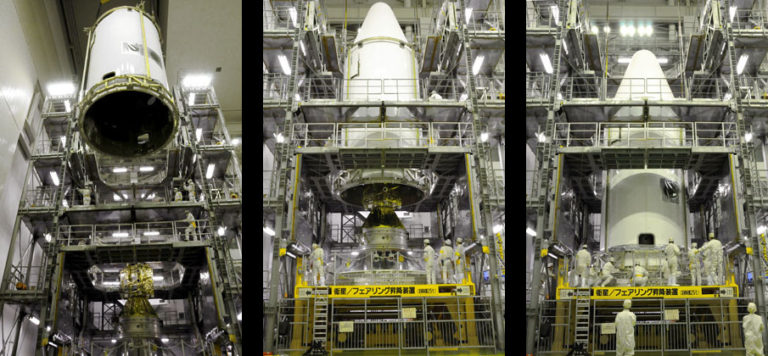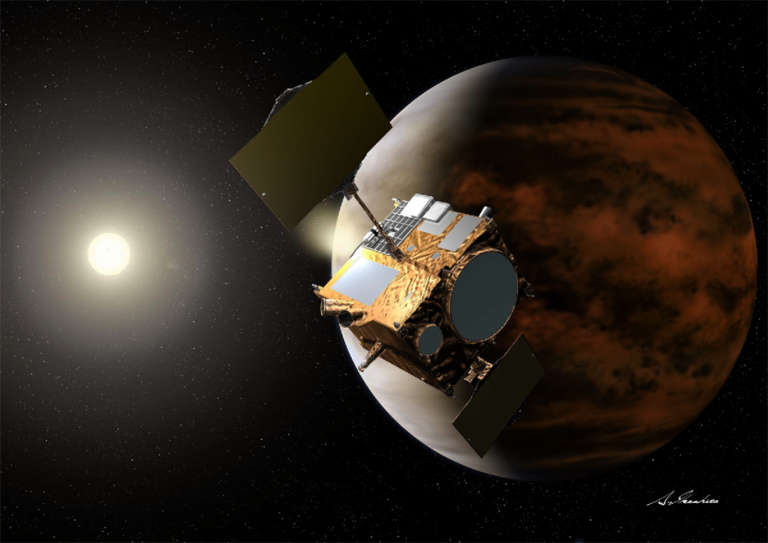Emily Lakdawalla • May 07, 2010
Akatsuki and IKAROS getting ready for launch, with your names aboard
I've been so focused on the dramatic return of "Mr. Hayabusa" (now fewer than 16 million kilometers away from Earth, and, incidentally, just two days away from his seventh launchday anniversary) that I've neglected to write much about two up-and-coming Japanese missions: Akatsuki and IKAROS. Akatsuki (which translates to "Dawn") has also been known as PLANET-C and Venus Climate Orbiter and is a mission to study the meteorology and climate of Venus. Once it launches on or after May 17 at 21:44:14 UTC, it will have a short cruise to Venus, entering its long, elliptical orbit in December. Its mission should last several years. IKAROS, or Interplanetary Kite-craft Accelerated by Radiation Of the Sun (ha! I just typed that from memory!) is a spacecraft whose mission will subsist only on sunlight: sunlight will provide its power and light pressure its thrust, in a demonstration of solar sailing.
The Planetary Society gathered 34,000 people's names for inclusion on a DVD that will fly to space with IKAROS; JAXA gathered another 34,000, and we added our full membership list too. The silica glass DVD was received by the IKAROS project on April 17 and installed on the spacecraft on April 25, according to IKAROS' Twitter feed.

If you missed putting your name on IKAROS, you can still send your name into space on The Planetary Society's LightSail. (If you are a member of The Planetary Society, past experience suggests your name will launch with every opportunity to send your name to space; but that won't cover your kids/parents/relatives/pets, so sign them all up here for LightSail.)
The two spacecraft met each other on April 30. IKAROS is the cylinder already stacked on the rocket at the bottom of this photo; Akatsuki is being carried over to it. The gold-foil-wrapped truncated cone below Akatsuki is an adaptor ring that allows the two spacecraft to be stacked.

Just a couple of days ago, the stacked spacecraft were encased in a fairing that will protect them on their ride through the atmosphere.

Support our core enterprises
Your support powers our mission to explore worlds, find life, and defend Earth. You make all the difference when you make a gift. Give today!
Donate

 Explore Worlds
Explore Worlds Find Life
Find Life Defend Earth
Defend Earth


